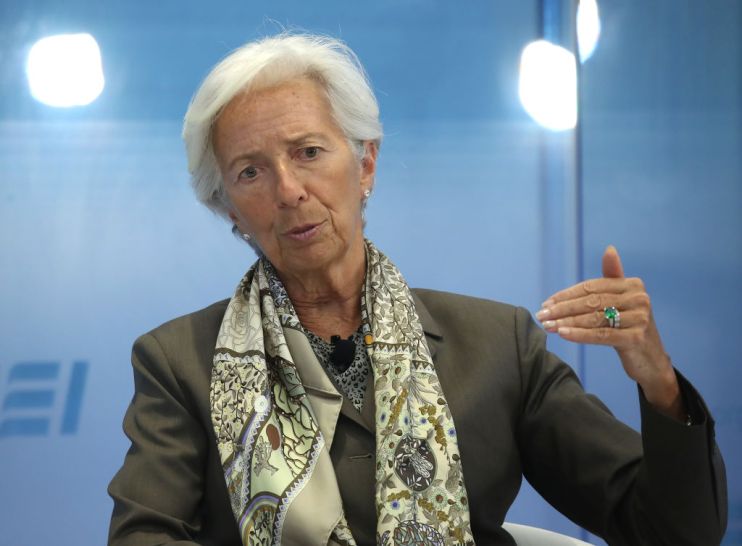IMF head: US-China trade war biggest threat to global growth

The head of the International Monetary Fund (IMF) has labelled the US-China trade war the principal threat to the global economy.
Read more: IMF chief says majority of countries to see slow growth in 2019
Christine Lagarde said US-China tariffs could reduce the level of global GDP by 0.5 per cent or around $455bn (£357bn) in 2020.
The intervention came at the end of the G20 meeting of finance ministers and central bank governors in Fukuoka, Japan. Ministers and governors wrangled over how to respond to US President Donald Trump’s economic nationalism during the two-day meeting.
Trump’s administration slapped 25 per cent tariffs on $200bn of Chinese goods last month. On Saturday it rowed back on its threat to tariff all imports from Mexico at five per cent after a deal was reached over immigration.
Lagarde, whose IMF seeks to ensure global financial stability, said today: “The global economy is showing tentative signs of stabilising and growth is projected to strengthen.”
“While this is good news, the road ahead remains precarious and subject to several downside risks,” she said. “The principal threat stems from continuing trade tensions.”
Lagarde said a 0.5 per cent hit to global growth “could make a significant dent in the projected pick-up in economic activity”.
“To mitigate these risks, I emphasised that the first priority should be to resolve the current trade tensions – including eliminating existing tariffs and avoiding new ones – while we need to continue to work toward the modernisation of the international trade system,” Lagarde said.
Lagarde also warned that “with interest rates very low, debt levels are rising in many advanced economies, and emerging markets remain vulnerable to a sudden shift in financial conditions”.
“All this at a moment when monetary and fiscal policy space is more limited than in the past,” she said.
Read more: Escalating trade tensions to harm global growth, IMF warns
Last week the European Central Bank (ECB), which is responsible for the euro, postponed the raising of interest rates from the current record-low level of zero per cent until at least the middle of 2020.